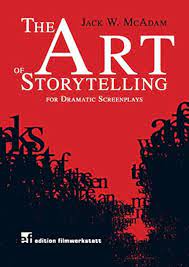Circalit offers screenwriters everything they need to take their script from first draft through to being optioned or produced. A lot of screenwriters use our service simply for getting free feedback from fellow writers; we have one of the best screenwriting communities anywhere on the web, where you can get sincere and surprisingly professional advice from fellow screenwriters if you’re willing to exchange reviews.
For screenwriters who already have a finished script and are now looking for producers we also have the Circalit Gold List, which is a private list of screenplays that we’re currently trying to get funded. We like to think of it as our own ‘Hollywood Blacklist’ but for undiscovered writers. If you want to get on the Gold List, you need to get one of our professional critics, like Hollywood Screenwriter Tom Lazarus or New York Times journalist Graham Fuller, to critique your script. If they give it the go ahead, then we will advertise it to the professionals who use the site and do everything we can to help get it funded.
There are hundreds of industry professionals who use Circalit, from big talent agencies like ICM through to small boutique agencies like Energy Entertainment or Dench Arnold. Obviously we’re UK based so we have lots of UK production companies like Ealing Studios and the BBC, but we do have LA companies like Madhouse Entertainment, Evolution Entertainment and so on. There are also a host of indie filmmakers and directors on the site as well. We also work with consultancies like Advanced Films who are not strictly a production company but who will nevertheless recommend a script to their own contacts if they think like it.
It is all about showcasing your script and building a network around it. A producer will sit up and pay attention to your script if he can see that other producers are already following you—it’s a bit like online dating in that respect! In addition, if you can get an influential producer to follow you on Circalit then they will receive a notification every time you upload a new project as well. It’s about building a reputation as a writer.
The social networking aspect of the Circalit is incredibly important to us, which is why we’re fully integrated with Facebook and other social networks. In terms of practicalities, what this means is that if you send your Circalit project to an influential person and they read it, then their friends will start reading it through the likes of Facebook and Twitter. It’s literally about making sure your script is being read in the right circles.
We also do a lot of good old-fashioned networking on behalf of our writers as well. When we first set up Circalit, we wanted to create a system where we would be able to automatically send agents and producers good scripts based on their specified preferences. That is still something that we try to do, but we’ve also learned that nothing compares to old-fashioned networking—knowing who your producers are and what they’re looking for.
When you publish your script publishing your script on Circalit, it is automatically copyright protected; you’re essentially establishing your legal ownership of it. We also have a custom reading technology which means that no one can highlight, copy, paste, download or print your work. We also keep track of who reads your work, and this is particularly important. You can also decide who exactly is allowed to read your script. We recommend that you allow only people who have logged in to read your script, although you can be even more selective than this if you want. You can also decide what percentage of your script you’d like to share with the public. We don’t recommend that you share all of your script in one go. It’s also a myth that your script is more vulnerable online; in screenwriting, the majority of cases of copyright infringement come from writers sending out hard copies to the wrong people.
Using Circalit’s services can certainly lead to financing. If you check the competitions section, or even just sign up to our Facebook or Twitter page, we have funding opportunities all the time.
We’re currently running a short film series where we bring in an up-and-coming director to host a writing competition to choose and direct a short film script by a first time writer. And we’ve also just posted the shortlist for our multiplatform writing competition with Portal Entertainment; the winner will receive £8k to develop a multiplatform ‘storyworld’ in partnership with Portal Entertainment.
In our experience most of the funding opportunities for crowd-sourcing tend to be for short content, or content that can be easily serialized. Obviously this is due to cost, but I think it’s also because short content is well suited for community based content platforms and social media as well.
This social angle is particularly important for independent filmmakers who don’t have marketing budgets to play with, and have to rely on the kind of grass roots distribution that social media and community based content platforms can offer. Sites like Circalit, which marry social networking with streaming, have already become the main channel for indie filmmakers to market and distribute their work, and I firmly believe that it’s because of these new content platforms that we’re witnessing the blossoming of independent film at the moment.
Just as content platforms and social media are already defining indie film distribution, they are also having a huge impact on funding models as well. In the current climate, investors are increasingly looking for projects that already have a proven audience. If you don’t have a huge deck of contacts at your disposal then getting traction on Vimeo or Circalit or one of the other content platforms is practically a requirement for indie filmmakers who are looking for funding.
Content platforms and social media are also pushing indie filmmakers towards what I call an ‘iterative funding model’. Iterative funding means funding and releasing a project in smaller chunks, whilst focusing on building an audience from a much earlier stage in the process. Crowd-funding, for instance, is, in my opinion, another manifestation of a more general movement towards iterative funding. Iterative funding allows you to build an audience around a project and create a feedback loop from the start, rather than pouring everything you have into creating a finished product and then simply hoping people will like it.
In the case of Circalit you can start building an audience as soon as your first draft is finished, so that you’re already engaging your audience and listening to what they’re saying. In the case of crowd-funded projects, you can actually create a huge amount of hype around a project before you’ve really done anything except have an idea. The movement towards iterative funding is great for indie filmmaking in general.










